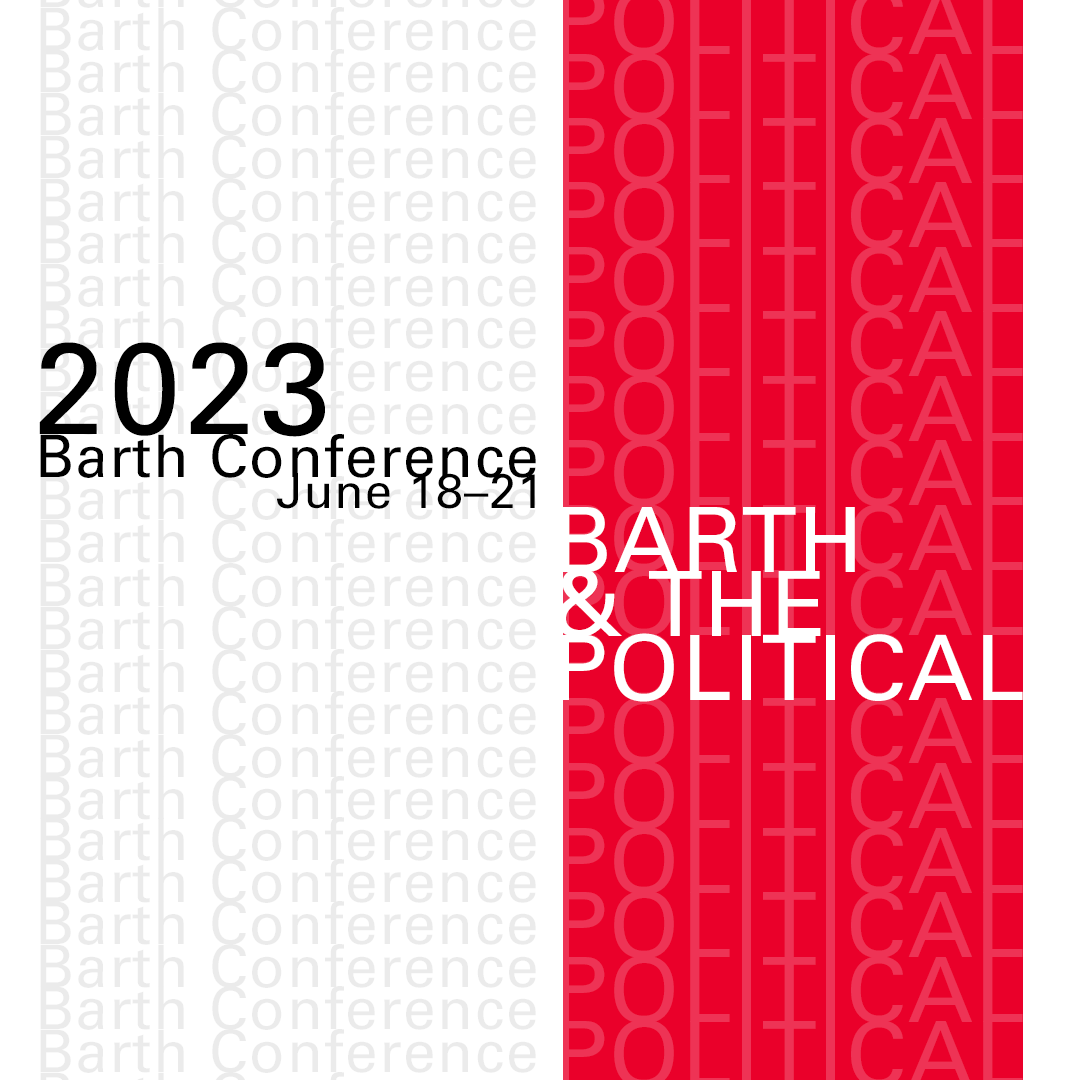
Date
Time
2023 Annual Karl Barth Conference
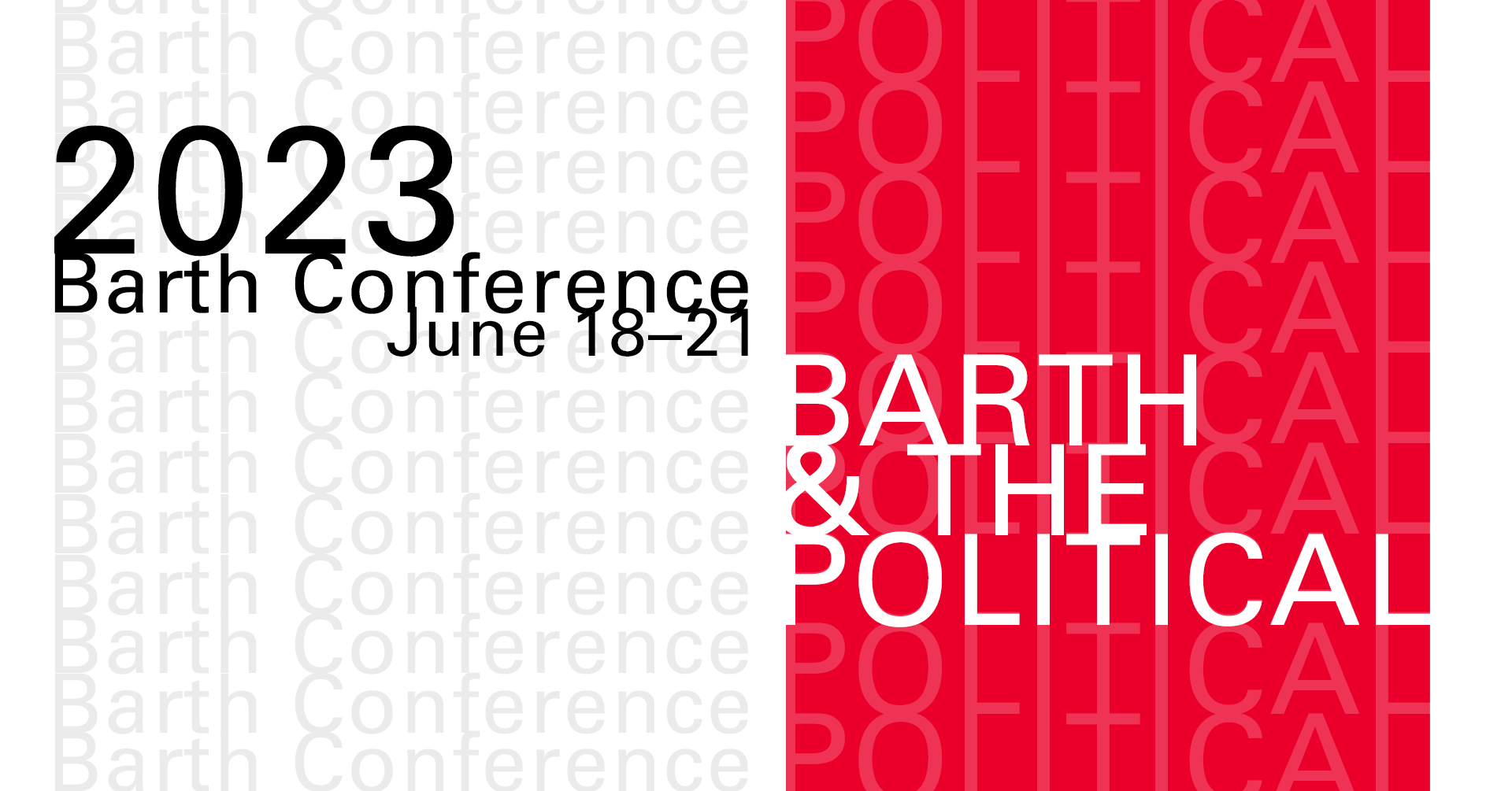
About
The task of theology, as Karl Barth maintained throughout his life, is to talk about God, but who this God is will invariably conjure up conflict with political power aspirations. Barth’s positioning of theology has always been contested—as too political by some, as un-political or anti-political by others–and his concrete theological commitments as well as his concrete political stances have been problematized in a variety of ways.
The aim of the conference is simple and momentous: to engage the contested and the disruptive in both the theological and the political. Major scholars working in different areas of political theology will test and contest Barth as a resource for political theology, broadly construed, and enter into critical and constructive conversation with Barth. The conference will foster new conversations on Barth and political theology, generate creative space for critical engagement, and explore the potential for an explicitly theological stance in complex and difficult social and political contexts.
Barth understood theological judgments to be entangled with political judgments. Barth was acutely aware of death-dealing political theologies that emerge from religious nationalism and its programs. Certainly, every biography of Barth references his commitment to socialism, his preaching to struggling blue-collar workers, and the fervent objection to his teachers for their political illusions. That Barth was immersed in the political cannot be refuted. The aim of the conference is to read Barth out of the box together with those who are not by name or profession “dedicated Barth scholars” because we agree with Barth, that “the Christian community is of ultimate and supremely political significance.” The aim is to read Barth squarely situated in his context because we think his context may be relevant to the “prevailing present”—current religious forms of nationalism in the United States make Barth’s context a little closer to home than we might like to think. Conference participants were selected because they each agree we ought always to attend to the most urgent questions of theology. Reading theology through the prism of Barth’s political commitments is heuristic for considering theology as a site of resistance and as prophetic witness.
Speakers
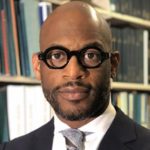 J. Kameron Carter
J. Kameron Carter
J. Kameron Carter is Professor of Religious Studies and African American and African Diaspora Studies at Indiana University, Bloomington, where he also codirects IU’s Center for Religion and the Human. His work focuses on the linked catastrophes of race, (settler) colonialism, and environmental crises as matters of religion. Author of the highly acclaimed Race: A Theological Account (Oxford UP, 2008) and The Anarchy of Black Religion: A Mystic Song (in final production with Duke UP for publication in late 2022), Carter is in the last stages of writing The Religion of Whiteness: An Apocalyptic Lyric, which is with Yale UP.
 Brandy Daniels
Brandy Daniels
Brandy Daniels is an Assistant Professor of Theology and of Gender, Women’s, and Sexuality Studies at the University of Portland. Brandy has published on topics ranging from Bonhoeffer and Foucault on racial identity, to poststructuralism and liberation theology, to Eastern Orthodox apophatic theology and Lacanian psychoanalytic theory. Her current research project explores the ways accounts and practices of formation in modern Christianity, particularly within feminist theologies, impact gender and sexual difference. Brandy serves as the co-chair of the Queer Studies in Religion unit of the American Academy of Religion, as co-chair of the LGBTQ working group and the Women’s Caucus of the Society of Christian Ethics, as member on the executive committee of the Political Theology Network, and she is an ordained minister with the Christian Church (Disciples of Christ).
 Gary Dorrien
Gary Dorrien
Gary Dorrien teaches at Union Theological Seminary and Columbia University. His many books include Kantian Reason and Hegelian Spirit: The Idealistic Logic of Modern Theology (2012, Wiley-Blackwell), which won the PROSE Award, The New Abolition: W. E. B. Du Bois and the Black Social Gospel (Yale, 2015), which won the Grawemeyer Award, and Breaking White Supremacy: Martin Luther King Jr. and the Black Social Gospel (Yale, 2018), which won the American Library Association Award. His latest books are In a Post-Hegelian Spirit: Philosophical Theology as Idealistic Discontent (Baylor, 2020) and American Democratic Socialism: History, Politics, Religion, and Theory (Yale, 2021).
 Catherine Keller
Catherine Keller
Catherine Keller is George T. Cobb Professor of Constructive Theology in the Graduate Division of Religion of Drew University. She works across a spectrum of ecofeminist, process, pluralist, political, philosophical theology. Books she has authored include From a Broken Web: Separation, Sexism and Self , Apocalypse Now & Then; God & Power; Face of the Deep: a Theology of Becoming; On the Mystery: Discerning God in Process; Cloud of the Impossible: Negative Theology and Planetary Entanglement; and Intercarnations: Exercises in Theological Possibility; Political Theology of the Earth. Most recent is Facing Apocalypse: Climate, Democracy and Other Last Chances. She has also co-edited several volumes of the Drew Transdisciplinary Theological Colloquium.
 Natalia Marandiuc
Natalia Marandiuc
Natalia Marandiuc is Assistant Professor of Systematic Theology at Perkins School of Theology, SMU, where she also serves as affiliate faculty in the Religious Studies graduate program. Her first book, The Goodness of Home: Human and Divine Love and the Making of the Self was published by Oxford University Press in 2018 and won the Aldersgate Prize. She is currently writing her second monograph, provisionally titled Love and Human Thriving: A Feminist Soteriology, and has received a Templeton award to support this work. She co-chairs the Christian Systematic Theology Unit at the American Academy of Religion. She earned her Ph.D. in religious studies, with a specialization in systematic theology, from Yale University.
 Hanna Reichel
Hanna Reichel
Hanna Reichel is Associate Professor of Reformed Theology at Princeton Theological Seminary. Reichel earned their Dr. theol. (~ PhD) in systematic theology from Heidelberg University, Germany. Prior to coming to Princeton Theological Seminary, they have taught at Heidelberg University and Halle-Wittenberg University. Reichel’s first book Theologie als Bekenntnis: Karl Barths kontextuelle Lektüre des Heidelberger Katechismus received the Lautenschläger Award for Theological Promise and the Ernst Wolf Award. Reichel is currently working on two book projects. Political Theologies of Omniscience analyzes contemporary surveillance cultures through a doctrinal lens. Better Theology! Conceptual Design and the Affordances of Doctrine re-envisions theological work “after method,” drawing on Karl Barth and Marcella Althaus-Reid to advance a proposal built on design theory and philosophy of information.
 Eboni Marshall Turman
Eboni Marshall Turman
Eboni Marshall Turman teaches constructive theology, ethics, and African American religion at Yale University Divinity School. Her research interests include the varieties of 20th century US theological liberalisms, most especially Black and womanist theological, social ethical, and theo-aesthetic traditions. In addition to several journal articles and book chapters, she is the author of Toward a Womanist Ethic of Incarnation: Black Bodies, the Black Church, and the Council of Chalcedon. Her current book project is tentatively titled, Black Woman’s Burden: Male Power, Gender Violence, and the Scandal of African American Social Christianity. She is a 2018 recipient of the Inspire Yale award, and a 2018 recipient of the Yale University Bouchet Faculty Excellence award for research and teaching. Dr. Turman co-chairs the Black Theology group of the American Academy of Religion and serves on the executive board of the Society for the Study of Black Religion.
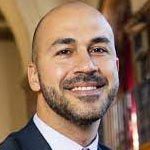 Devin Singh
Devin Singh
Devin Singh is Associate Professor of Religion at Dartmouth College and faculty associate in Dartmouth’s Consortium of Studies in Race, Migration, and Sexuality. He is the author of Divine Currency: The Theological Power of Money in the West (Stanford 2018) and Economy and Modern Christian Thought (Brill 2022), co-editor of Reimagining Leadership on the Commons: Shifting the Paradigm for a More Ethical, Equitable, and Just World (Emerald 2021), as well as author of articles in journals such as Political Theology, Harvard Theological Review, Journal of Religious Ethics, and Telos. He is currently completing a book project on debt in the religious imagination and beginning another project on the politics of the doctrine of the ascension.
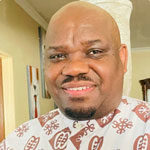 Rothney S. Tshaka
Rothney S. Tshaka
Rothney S. Tshaka completed his PhD at the University of Stellenbosch. He is currently Full Professor of Ethics and Systematic Theology and Director of the School of Humanities, in the College of Human Sciences at the University of South Africa. He is also an ordained Minister of Word and Sacrament in the Uniting Reformed Church in Southern Africa. He is one of the founding convenors for the Trans-Atlantic Round Table on Religion and Race, as well as editorial board member of Black Theology: An International Journal. His current research interests are in the fields of Black and African studies, Reformed Theology, Black and African Theologies and Critical Race theories. He is recipient of numerous scholarly awards including the Unisa chancellor’s award for research. He has been convenor for the NRF specialist committee for Religion and Theology. He has published a book, numerous articles and book chapters on the intersections of Theology, Race and Politics.
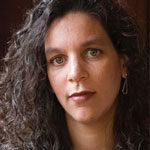 Andrea C. White
Andrea C. White
Andrea C. White is Associate Professor of Theology and Culture at Union Theological Seminary in the City of New York. Her teaching and research fashion a nexus between womanist theology, black feminist critical theory, and phenomenology. She serves as Chair of Columbia University’s Senate Commission on Diversity, and has served as Executive Director of the Society for the Study of Black Religion and Chair of the American Academy of Religion’s Black Theology Unit. She holds a PhD in theology from The University of Chicago, Master of Divinity from Yale Divinity School, and Bachelor of Arts from Oberlin College. She is also an ordained American Baptist minister.
Contact
If you have any questions or concerns, email us at barth.center@ptsem.edu or call us at 609-524-1981.
Please allow at least three business days for an email response.

